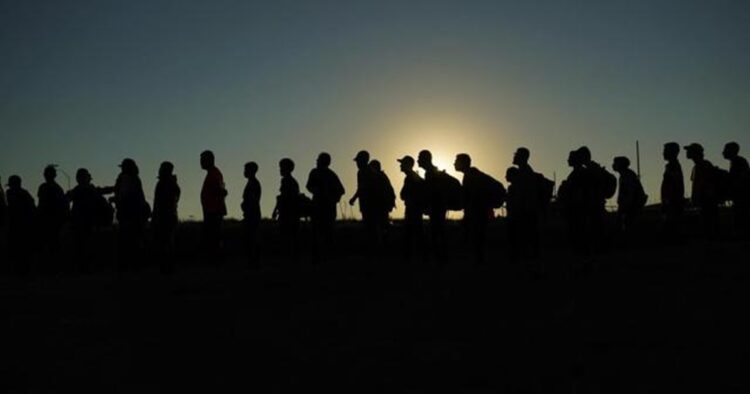Texas’ efforts to arrest migrants suspected of entering the US illegally were put on hold once more on Wednesday, causing uncertainty along the border and sparking anger from Mexico during the brief period when the law was in effect.
A late-night order from a 5th US Circuit Court of Appeals panel on Tuesday temporarily halted Texas’ aggressive expansion into border enforcement. Earlier that day, the US Supreme Court had allowed the law to proceed, a win for Republican Governor Greg Abbott and other GOP lawmakers advocating for similar measures in other states. However, an appeals court panel later put the law on pause again, ahead of scheduled oral arguments on Wednesday.
During the short time the law was active, Texas authorities didn’t announce any arrests or confirm active enforcement along the border. Sheriff Brad Coe from Kinney County stated that while his deputies embraced the arrest powers, they would require probable cause for any arrests.
The Supreme Court decision didn’t rule on the merits of the law but instead sent the challenge led by the Justice Department back to the lower appeals court. The court had previously issued an injunction against the law, citing concerns over federal immigration authority and potential diplomatic repercussions.
Under the Texas law, individuals arrested for illegal entry could face prosecution or agree to leave the US upon a judge’s order.
Mexico responded sharply, refusing to accept individuals ordered to cross the border back into their territory, asserting their right to protect their nationals in the US and determine their own entry policies.
The impact of Texas’ law extends beyond its borders, with other GOP-led states considering similar measures. In Iowa, a bill granting state law enforcement powers to arrest individuals previously denied entry into the US passed the state House and awaits the governor’s signature.
Critics, including El Paso County Judge Ricardo Samaniego, argue that immigration enforcement should remain a federal responsibility to avoid complications and potential dangers associated with local enforcement efforts.
Skylor Hearn, from the Sheriffs’ Association of Texas, stated that while some counties are preparing for enforcement, it’s a costly endeavor that ideally falls under federal jurisdiction.
Legal experts like Daniel Morales foresee challenges in enforcing the Texas law, noting resource constraints and logistical difficulties. Despite recent declines in illegal crossings, the issue remains complex and influenced by various factors, including international cooperation and the strategies of smuggling organizations.
President Joe Biden’s administration has credited Mexico’s increased enforcement efforts for reduced arrests in certain border areas, highlighting the interconnected nature of border security and the role of neighboring countries in managing migration flows.

















Comments